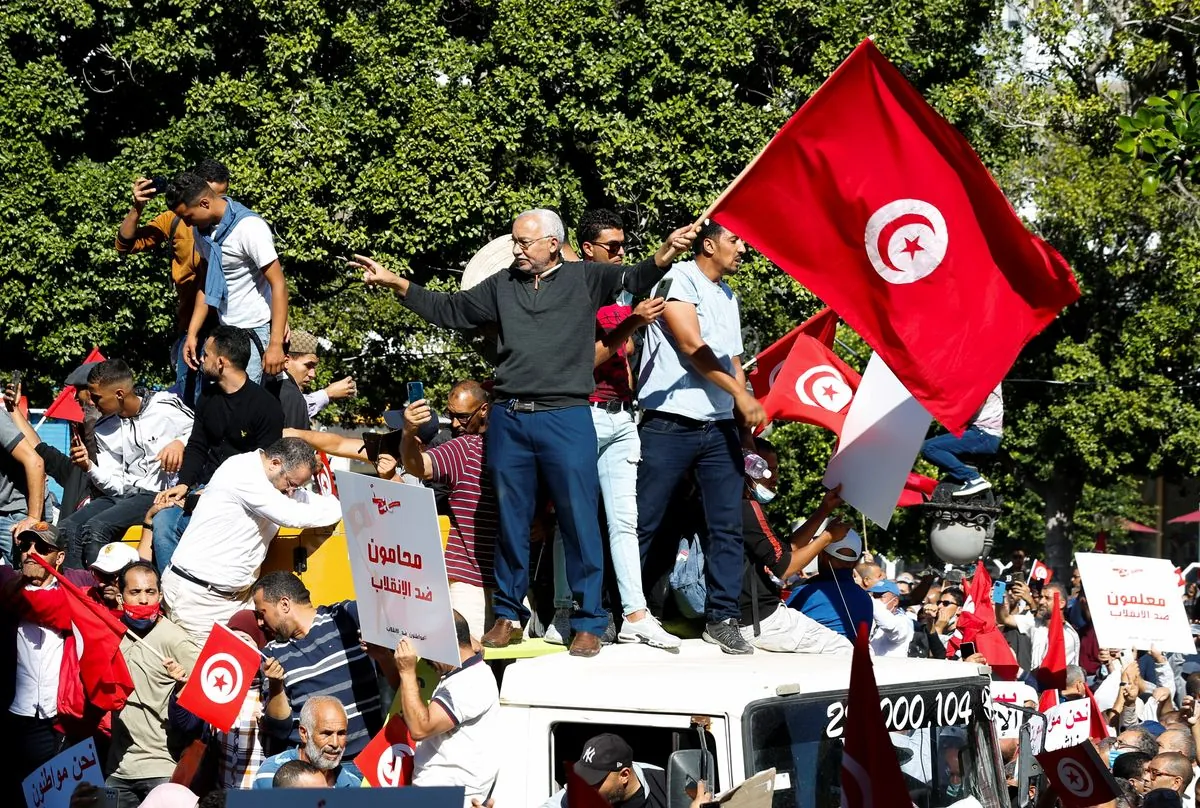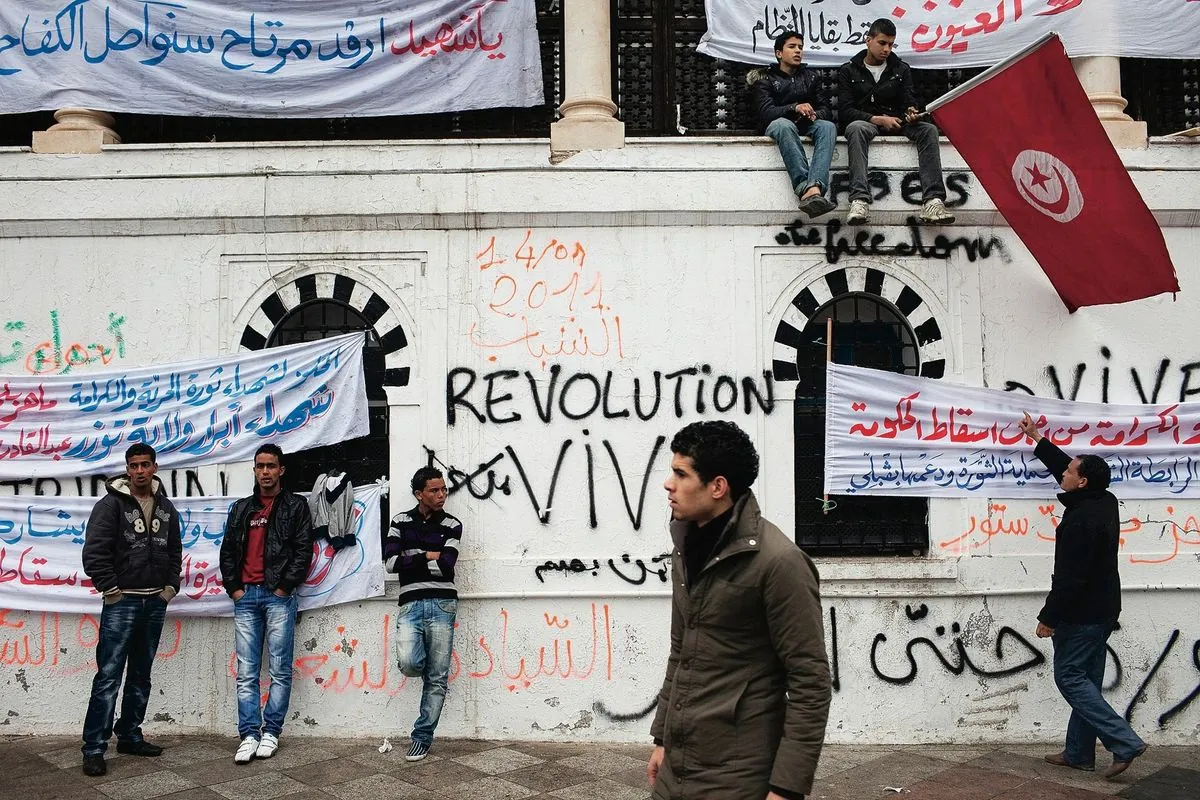Tunisia's Presidential Campaign Begins Amid Protests and Political Tension
Tunisia's presidential campaign officially starts as protesters decry political arrests and economic woes. President Saied seeks reelection amid growing concerns over civil liberties and opposition challenges.

Tunisia, the northernmost country in Africa, has officially commenced its presidential campaign season amidst growing political tension and public discontent. On September 13, 2024, the capital city of Tunis witnessed what appeared to be the largest demonstration since authorities began a series of arrests earlier this year.
Hundreds of Tunisians peacefully marched through the streets, voicing their concerns over what they perceive as a deteriorating state of the nation. Khaled Ben Abdeslam, an urban development consultant, expressed worry about the increasing number of political figures imprisoned under President Kais Saied's administration.
"We're here to say no and show that we don't all agree with what's really happening in the country."
The protesters highlighted both economic and political issues, carrying signs that read, "Where is sugar? Where is oil? Where is freedom? Where is democracy?" This demonstration comes at a critical time, as Tunisia prepares for its presidential election scheduled for October 6, 2024.

Tunisia, which sparked the Arab Spring in 2011 by overthrowing longtime President Zine El Abidine Ben Ali, has faced numerous challenges in its journey towards democracy. The country, known for being the first Arab nation to abolish slavery in 1846 and to grant women voting rights in 1959, is now grappling with concerns over civil liberties and economic stability.
Kais Saied, who first took office in 2019, is seeking reelection amid controversy. Since his initial election, Saied has taken steps to consolidate power, including freezing parliament and rewriting the constitution. His administration has been criticized for arresting journalists, activists, and political opponents across the ideological spectrum.
The economy of Tunisia, which heavily relies on tourism and has been a major olive oil producer since Roman times, continues to face significant challenges. The unemployment rate has risen to 16%, particularly affecting the youth population.
In the lead-up to the election, the political crackdown has intensified. Opposition figures have faced arrests, gag orders, and criminal investigations that observers describe as politically motivated. The election authority, composed of Saied appointees, has dismissed court rulings ordering the reinstatement of three challengers to the incumbent president.
Hajer Mohamed, a 33-year-old law firm assistant, expressed her concerns about the country's direction:
"We never thought that after the 2011 revolution we'd live to see the country's suffocating situation. Even under former dictator Zine El Abidine Ben Ali, the situation wasn't as scandalous as it is today."
As Tunisia, with its diverse landscape ranging from Mediterranean coasts to the Sahara Desert, approaches this crucial election, the international community watches closely. The outcome of this political process will likely have significant implications for the future of democracy in the country that initiated the Arab Spring over a decade ago.


































